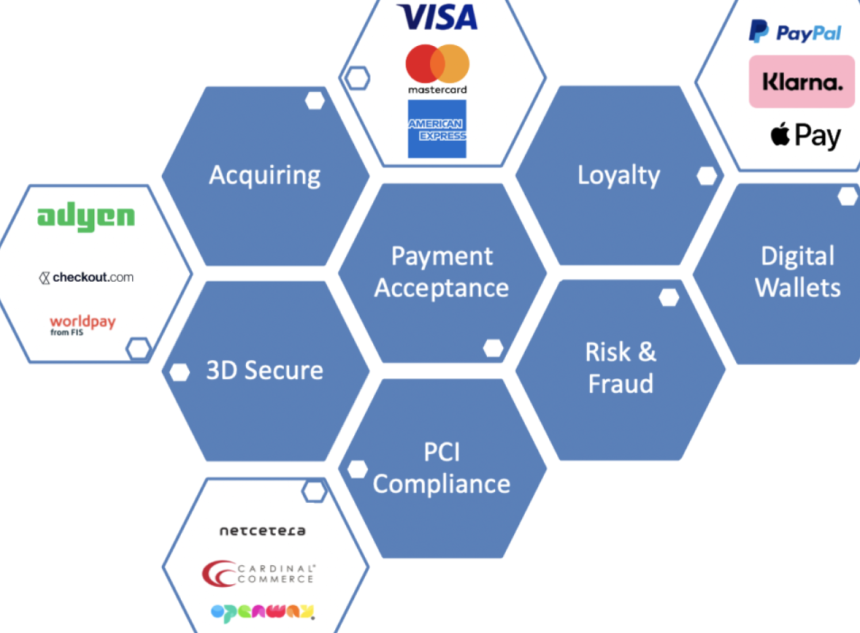In the rapidly advancing digital era, businesses must stay updated on the constantly changing world of online transactions. Payment service providers (PSPs) are vital in enabling smooth and secure monetary transactions between customers and merchants. This comprehensive guide will explore the intricacies of payment service providers, covering their functionalities, benefits, and key considerations when selecting the most appropriate PSP for your business.
Table of Contents:
- Introduction to Payment Service Providers
- How Payment Service Providers Work
- Understanding Payment as a Service
- Types of Payment Service Providers
- Advantages of Using a Payment Service Provider
- Key Features of a Payment Service Provider
- Selecting the Right Payment Service Provider
- Popular Payment Service Providers
- Emerging Trends in Payment Service Providers
- Conclusion
Introduction to Payment Service Providers
A payment service provider (PSP) is a third-party company that enables businesses to accept and process digital transactions such as credit cards, debit cards, electronic wallets, and other online payment methods. PSPs facilitate the smooth and secure flow of funds by mediating between the customer, the merchant, and the financial institutions.
PSPs have become a vital part of the eCommerce ecosystem as they offer businesses a straightforward and efficient way to accept and manage online transactions. With a PSP, merchants could establish their own payment infrastructure, which could be time-consuming, expensive, and complex.
How Payment Service Providers Work
Payment service providers operate by performing various tasks to ensure smooth completion of online transactions when a customer makes a purchase. These tasks include:
Transaction Processing: The PSP handles the customer’s payment details, such as credit card information or electronic wallet credentials, and sends the transaction data to the merchant’s acquiring bank.
Authentication and Authorization: The PSP verifies the customer’s identity and confirms if they have enough funds to cover the purchase.
Fraud Prevention: PSPs utilize advanced algorithms to detect and prevent suspicious transactions, enhancing security measures.
Settlement: The PSP facilitates the transfer of funds from the customer’s bank account to the merchant’s account, finalizing the transaction.
Reporting and Analytics: PSPs offer merchants comprehensive reporting and analytical tools, enabling them to monitor and optimize their online payment processes effectively.
Exploring Payment as a Service
Payment as a service (PaaS) expands the payment service provider framework. PaaS providers deliver a comprehensive and adaptable range of payment solutions, encompassing payment processing, fraud detection, reporting, and integration with payment gateways. By providing a unified platform for handling all aspects of online transactions, PaaS providers streamline the payment procedure for businesses and assist in seamless scalability.
A notable example of a PaaS provider is UniPay Gateway, which offers a white-label payment platform that businesses can customize to fit their specific needs. With a PaaS provider, merchants can leverage a single platform to manage multiple payment channels, streamline their operations, and reduce costs, all while maintaining a high level of security and compliance.
Types of Payment Service Providers
Several categories of payment service providers cater to diverse business models and industries. While some PSPs specialize in specific payment methods or regions, others offer a broader range of services. Here are the most common types of PSPs:
- General Payment Service Providers: These PSPs provide various payment processing solutions suitable for businesses across various sizes and industries. Prominent examples include PayPal, Stripe, and Square.
- Merchant Account Providers: These PSPs enable businesses to establish their own merchant accounts, allowing them to accept credit and debit card payments directly. Notable examples include First Data and Worldpay.
- Payment Gateways: Payment gateways establish a connection between merchants’ websites and their payment processors, ensuring secure acceptance of online transactions. Well-known examples encompass Authorize.Net and Braintree.
- Mobile Payment Providers: These PSPs facilitate transactions conducted through mobile devices, such as smartphones and tablets. Prominent examples comprise Apple Pay and Google Pay.
- International Payment Service Providers: Cross-border PSPs enable businesses to accept payments in various currencies and from customers located in different countries. Prominent examples include Adyen and Payoneer.
Advantages of Using a Payment Service Provider
By partnering with a payment service provider, businesses can reap numerous benefits, including:
- Simplified Payment Processing: PSPs handle the complex payment processing process, freeing up time and resources for merchants to focus on growing their businesses.
- Security and Compliance: PSPs ensure that transactions are processed securely and comply with PCI DSS industry regulations.
- Multiple Payment Options: PSPs enable businesses to accept various payment methods, catering to customers’ diverse preferences and expanding their market reach.
- Fraud Prevention: PSPs employ advanced fraud detection tools and algorithms to protect merchants from fraudulent transactions and chargebacks.
- Scalability: As businesses expand, PSPs can readily handle higher transaction volumes, enabling merchants to scale without requiring additional investment in payment infrastructure.
- Global Expansion: PSPs with international capabilities can help businesses expand into new markets by facilitating cross-border transactions and offering localized payment options.
Key Features of a Payment Service Provider
When evaluating payment service providers, businesses should consider the following essential features:
- Ease of Integration: The PSP should offer easy integration options with popular eCommerce platforms, shopping carts, and other business software.
- Payment Options: An excellent PSP will support diverse payment methods, encompassing credit cards, debit cards, e-wallets, and alternative payment solutions.
- Security and Compliance: The PSP should adhere to industry standards, such as PCI DSS, and utilize advanced encryption techniques and tokenization to protect sensitive data.
- Fraud Prevention: Businesses should look for PSPs that offer robust fraud detection tools, including machine learning algorithms and customizable risk thresholds.
- Pricing: PSP pricing models vary, so businesses should consider transaction fees, monthly fees, and any additional charges before committing to a provider.
- Customer Technical Support: Having dependable customer support is crucial for promptly addressing any issues during the payment process. The PSP should offer various support channels, including phone, email, and live chat, to ensure effective communication and assistance.
Selecting the Right Payment Service Provider
Choosing the appropriate payment service provider (PSP) is a core decision that can significantly impact the success of your online transactions. Take into account the following considerations:
- Business Model: Evaluate your business model, target audience, and specific payment requirements. This assessment will help you narrow down your options and find a PSP that aligns with your needs.
- Payment Methods: Ensure that the PSP supports those payment methods that are the most critical to your customers, including credit cards, debit cards, e-wallets, and alternative payment solutions.
- Fees and Pricing: Compare the pricing models of various PSPs and assess their transaction fees, monthly charges, and any additional costs that may be involved.
- Security and Compliance: Look for a PSP that prioritizes security and adheres to the Payment Card Industry Data Security Standard (PCI DSS)
- Currency Support: If your business caters to international customers or has plans for global expansion, select a PSP that supports multiple currencies and provides localized payment options.
- Customer Support: Opt for a PSP that provides reliable customer support through various communication channels, including phone, email, and live chat.
- Taking these factors into account will enable you to make a good decision while selecting the ideal payment service provider for your business.
Popular Payment Service Providers
Among the vast array of payment service providers available in the current market, some of the most renowned and highly regarded PSPs include:
- PayPal: Recognized worldwide, PayPal enables businesses to accept payments from customers across the globe.
- Stripe: A popular PSP, Stripe offers a comprehensive suite of payment processing solutions, including support for recurring payments and subscription services.
- Square: Square provides an all-in-one payment platform that caters to both online and physical businesses, offering a variety of tools and features for transaction management.
- UniPay Gateway: UniPay Gateway is a notable payment service provider known for its flexible and customizable payment solutions. It offers advanced features such as multi-channel payment acceptance, recurring billing, and comprehensive reporting tools. UniPay Gateway stands out for its ability to cater to businesses of various sizes and industries.
These PSPs have established themselves as leaders in the industry due to their reliability, reputation, and comprehensive range of services.
Emerging Trends in Payment Service Providers
With the continuous advancement of technology, the landscape of payment service providers is adapting to meet the evolving requirements of businesses and consumers. Several new trends are shaping the future of PSPs, including:
- Mobile Wallet Integration: With the increasing popularity of mobile wallets like Apple Pay and Google Pay, PSPs are integrating these payment methods into their platforms to offer customers a seamless and secure checkout experience.
- Cryptocurrency Adoption: As cryptocurrencies gain mainstream acceptance, some PSPs are beginning to support digital currency payments, enabling merchants to accept transactions in Bitcoin, Ethereum, and other cryptocurrencies.
- Artificial Intelligence and Machine Learning: PSPs are progressively using AI (artificial intelligence) and machine learning algorithms to enhance their ability to detect fraud, optimize transaction processing efficiency, and deliver personalized customer experiences.
- Omnichannel Payments: As businesses adopt omnichannel strategies, PSPs are expanding their platforms to support online payments, mobile, and in-store.
Conclusion
Payment service providers (PSPs) are crucial in facilitating and managing online transactions for businesses. By comprehending the concept of a payment provider, the various types of PSPs, and the key considerations when selecting a PSP, companies can make well-informed decisions and opt for the most suitable provider. As the industry continues to advance, merchants need to stay informed about trends and new technologies to remain competitive in the online payments industry.















